Best Objective-C Books to Buy in February 2026
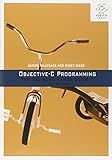
Objective-C Programming: The Big Nerd Ranch Guide
- AFFORDABLE PRICES FOR QUALITY READS-GREAT DEALS ON GREAT BOOKS!
- ECO-FRIENDLY CHOICE: REDUCE WASTE BY BUYING USED BOOKS.
- UNIQUE FINDS: DISCOVER RARE AND OUT-OF-PRINT TITLES TODAY!


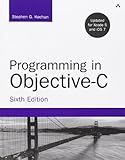
Programming in Objective-C (Developer's Library)


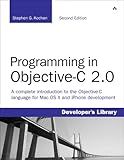
Programming in Objective-C 2.0


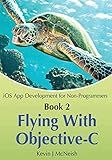
Book 2: Flying With Objective-C - iOS App Development for Non-Programmers: The Series on How to Create iPhone & iPad Apps
- QUALITY ASSURANCE: EACH BOOK IS INSPECTED FOR GOOD CONDITION.
- ECO-FRIENDLY CHOICE: SAVE MONEY AND PROMOTE SUSTAINABILITY.
- INSTANT ACCESS: ENJOY IMMEDIATE READING WITH FAST SHIPPING OPTIONS.


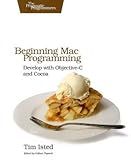
Beginning Mac Programming: Develop with Objective-C and Cocoa
- QUALITY ASSURANCE: EACH BOOK IS THOROUGHLY INSPECTED FOR GOOD CONDITION.
- ECO-FRIENDLY CHOICE: SAVE RESOURCES BY BUYING PRE-LOVED BOOKS!
- AFFORDABLE PRICING: GET GREAT READS AT A FRACTION OF THE ORIGINAL COST!


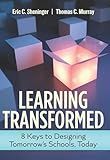
Learning Transformed: 8 Keys to Designing Tomorrow’s Schools, Today


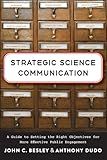
Strategic Science Communication: A Guide to Setting the Right Objectives for More Effective Public Engagement


Debugging Objective-C code can be a complex task, but with the right strategies and tools, you can efficiently identify and resolve issues. This guide will provide an overview of effective techniques to debug Objective-C code, along with tips on selecting the right resources to enhance your Objective-C skills.
Understanding Objective-C Debugging Basics
Before diving into debugging strategies, it's essential to understand the basic tools and techniques available:
- LLDB Debugger: Familiarize yourself with LLDB, an essential debugger for Objective-C. It provides powerful commands to inspect variables, set breakpoints, and control execution flow.
- Xcode Debugging Tools: Xcode, the primary IDE for Objective-C, offers a rich set of debugging tools. Utilize breakpoints, the console, and the variable view to gain insights during runtime.
- Symbolic Breakpoints: Use symbolic breakpoints to pause execution at specific methods or functions, which can be more efficient than standard breakpoints.
Advanced Debugging Techniques
As you become more comfortable with the basics, explore these advanced techniques to enhance your debugging efficiency:
1. Leverage Backtraces
Utilize backtraces to understand the call stack history when an exception occurs. This helps in identifying which functions were executed leading up to a problem.
2. Examine Memory Management
Memory management issues are prevalent when working with Objective-C. Use tools and techniques to track memory allocations and leaks:
- Instruments: Use the Instruments tool in Xcode to profile memory and identify leaks or potential over-retained objects.
- Read more about memory optimization to apply some Rust strategies that might inspire your Objective-C memory management approach.
3. Use Objective-C Specific Features
Understanding Objective-C specific features can aid in debugging:
- Message Forwarding: When a message fails to get delivered, Objective-C uses a mechanism called message forwarding. Learn how to implement
forwardInvocation:for deeper insights. - Dynamic Typing and Messaging: Reflect on how dynamic typing and messaging can lead to issues and how to log these actions for additional debugging details.
Choosing the Right Objective-C Books
Choosing the right resources is crucial for mastering Objective-C. Here’s how to select the best books for your needs:
1. Identify Your Skill Level
Evaluate whether you are a beginner or an advanced programmer to choose the most appropriate books. Beginners should look for books that cover the fundamentals and gradually introduce more complex concepts.
2. Look for Comprehensive Coverage
Select books that cover both the basic and advanced topics of Objective-C. Books that delve into real-world applications and examples can be particularly beneficial.
3. Check for Updated Content
Ensure the books are updated to the latest versions of Objective-C and incorporate modern features and best practices for 2025.
4. Read Reviews and Recommendations
Explore reviews and recommendations from the developer community to gain insights into the strengths and weaknesses of various books.
For further reading on affordable programming guides, you might be interested in looking at affordable groovy programming guides.
Preparing for Programming Interviews
Finally, if you’re debugging as part of interview preparation, understanding the evaluation process can be helpful. Learn more about programming interview evaluations.
In conclusion, debugging Objective-C in 2026 requires a combination of tools, techniques, and continual learning. By mastering these skills and choosing the right resources, you'll be well-equipped to tackle even the most challenging Objective-C debugging tasks.
